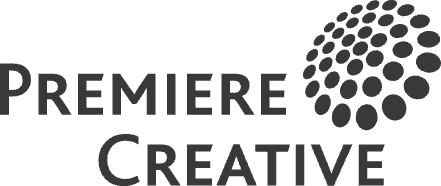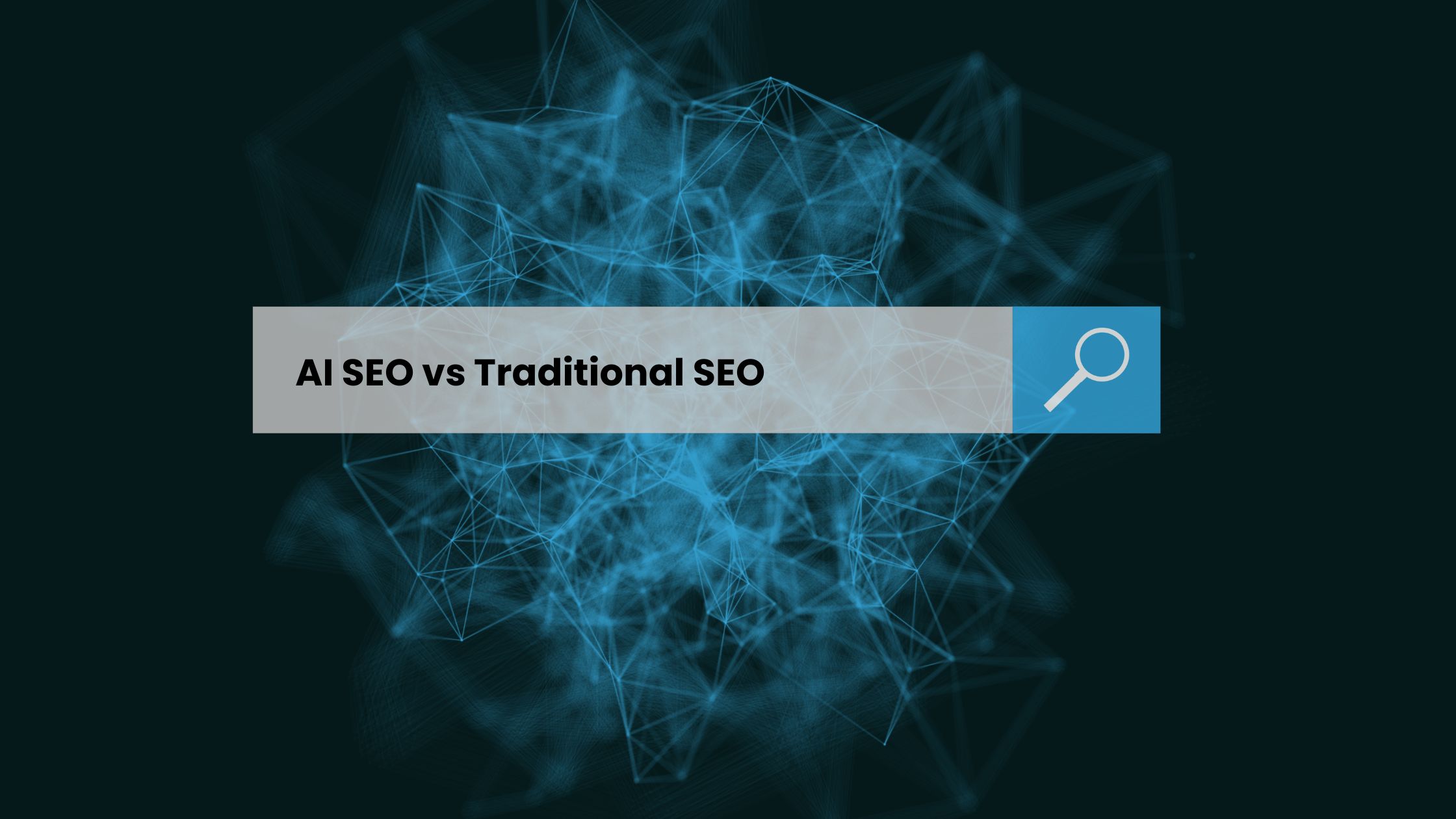If you’re running an e-commerce business in New Jersey, you’ve probably noticed that search results look different lately. When you ask Google a question, you don’t just see a list of links anymore. You see AI summaries — neatly packaged answers pulled from just a few trusted websites.
This change marks the rise of AI-driven search. From Google’s AI Overviews to ChatGPT, Perplexity, and voice assistants, AI systems now decide which brands get visibility — and which don’t.
The question for NJ businesses is simple: Is traditional SEO still enough? Or do you need to evolve toward AI SEO to stay visible?
Let’s break down what each approach does, how they differ, and what a hybrid strategy looks like for today’s ecommerce world.
Quick Answer:
Traditional SEO helps your pages rank in search results.
AI SEO helps your content get cited inside AI-generated answers and voice results.
The best strategy blends both — optimize your pages for people, and structure them for AI systems like Google Overviews and ChatGPT.
Understanding Traditional SEO
Traditional SEO has been the backbone of online visibility for two decades. It’s the process of improving your website’s content, structure, and authority so that it ranks higher in Google’s search results.
What Traditional SEO Focuses On
- Keyword Research: Finding phrases people use, like “NJ ecommerce clothing” or “best local coffee brands.”
- On-Page Optimization: Using those keywords in titles, meta descriptions, and headings.
- Off-Page SEO: Building backlinks and mentions from other reputable sites.
- Technical SEO: Improving load speeds, mobile responsiveness, and crawlability.
Why It Still Works
Traditional SEO is reliable. It’s proven to increase traffic and help websites appear in standard search results. Metrics like rankings, click-through rates, and backlinks still matter — they show that search engines trust your site.
But There’s a Catch
Search habits have changed. More people now get their answers directly from AI summaries or voice search, without ever clicking a link. In fact, nearly half of all Google searches end without a single click.
That means a site that ranks #1 might still lose visibility if it’s not structured for AI.
Understanding AI SEO (Generative SEO)
AI SEO — also called Generative Engine Optimization (GEO) — is about helping your site become readable and referenceable by AI systems. Instead of just ranking in results, your goal is to get cited or summarized in AI-generated answers.
How It Works
AI systems like Google Overviews, ChatGPT, and voice assistants don’t rely on simple keywords. They rely on entities, structure, and clarity to understand meaning and context.
Here’s what AI SEO focuses on:
- Entity Optimization: Clarify who you are, what you offer, and where you operate. For example, “Premiere Creative, an AI SEO agency in NJ.”
- Schema Markup: Add structured data for FAQs, products, reviews, and local business details so AI can read your site like a database.
- Conversational Content: Write naturally, answering questions the way people ask them aloud.
- Citation Readiness: Build authority and structure so AI models can confidently quote your page.
- Voice Search Optimization: Include brief, direct answers to voice queries such as “best ecommerce SEO agency near me.”
Why It Matters
AI SEO helps your brand show up in:
- Google AI Overviews
- ChatGPT and Perplexity summaries
- Voice search results through Siri, Alexa, and Google Assistant
In short, AI SEO makes your content discoverable in the places where people now get their answers.
Traditional SEO vs AI SEO — What’s the Difference?
| Aspect | Traditional SEO | AI SEO |
| Goal | Rank pages in search results | Get cited in AI-generated answers |
| Focus | Keywords, backlinks | Entities, schema, and clarity |
| Content Style | Long-form, keyword-driven | Short, structured, answer-focused |
| Search Type | Text-based | Voice, zero-click, AI summaries |
| Metrics | Rankings, CTR | Mentions, citations, impressions |
For ecommerce brands in places like Newark, Morristown, or Jersey City, these differences are more than technical. They determine whether your brand shows up at all in the new AI-driven search landscape.
Is AI Replacing SEO?
Absolutely not. AI isn’t replacing SEO — it’s reshaping it.
Think of AI SEO as the next chapter in search optimization. Traditional SEO builds visibility in Google’s organic results. AI SEO extends that visibility into AI answers, summaries, and voice responses.
What’s Changing
- AI systems like BERT and MUM understand intent, not just keywords.
- Zero-click searches now represent more than half of all search activity.
- AI assistants are becoming the first stop for product and local discovery.
That’s why a site that relies solely on old-school keyword tactics risks being invisible — even if it’s technically “ranking.”
Example: The Voice Search Scenario
Imagine a shopper in Princeton says, “Hey Google, where can I buy sustainable skincare in New Jersey?”
Google’s AI doesn’t scroll a list of results. It cites two or three trusted brands with structured, conversational content.
If your website doesn’t have schema markup or clearly labeled entities, you’re not even in the running.
The Hybrid SEO Strategy NJ Ecommerce Needs
You don’t have to choose between AI SEO and traditional SEO. The best-performing brands combine both.
Traditional SEO gets you found in search results.
AI SEO ensures you’re cited in AI-generated answers and voice searches.
Here’s how to blend the two effectively.
1. Combine Keyword and Entity Optimization
Continue using keyword research tools like Google Keyword Planner or Ahrefs to find what your audience is searching for.
But take it further by mapping entities — the who, what, and where behind your business.
For example, if your keyword is “NJ handmade jewelry,” your entities are “jewelry,” “handcrafted,” “New Jersey,” and your brand name. Make sure these are clearly referenced across your site and schema.
2. Add Structured Data (Schema Markup)
Use schema markup to help AI systems interpret your pages.
Add FAQ, Product, Review, and LocalBusiness schema.
Mark up product details, store hours, and service areas.
This structured data helps Google and AI models understand exactly what your business offers.
3. Write Answer-Based Content
People don’t type search queries like they used to. They ask questions.
Add short, factual answers throughout your pages — especially near the top.
For example:
Question: “What are the best ecommerce stores in NJ?”
Answer: “The best ecommerce stores in New Jersey combine fast shipping, local inventory, and AI-driven customer support.”
Simple, direct, and clear — that’s the language AI systems love to cite.
4. Optimize for Voice and Zero-Click Queries
Voice searches often start with “Who,” “What,” or “Where.”
Build blog posts and FAQ sections around those conversational prompts.
Keep sentences under 20 words and paragraphs short.
This makes your content both mobile- and AI-friendly.
5. Track Metrics for Both
Traditional SEO metrics still matter — rankings, impressions, and organic traffic.
But add new indicators of AI performance, such as:
- Featured snippet visibility
- Google AI Overview mentions
- Voice search impressions
- Entity recognition in Search Console
These data points show whether your content is moving from “ranked” to “referenced.”
The Challenges of AI SEO (and How to Overcome Them)
AI SEO Challenges
- It requires schema knowledge and structured content planning.
- AI citation systems are still evolving.
- It’s harder to track ROI compared to keyword rankings.
Start small: add schema to top pages, rewrite intros as short summaries, and build internal links to reinforce your key entities.
Traditional SEO Challenges
- NJ ecommerce is competitive — from Bergen County to Princeton, every niche is saturated.
- Relying on backlinks and keywords alone isn’t enough for modern visibility.
Focus on content clarity over content volume. AI doesn’t reward the longest pages — it rewards the clearest ones.
NJ-Specific Considerations
Local competition is high, but so are local opportunities.
If your brand serves a community — Newark, Morristown, or Hoboken — local schema and Google Business Profile updates are your strongest tools.
Tie your structured data to geographic identifiers, and you’ll rise faster in AI Overviews for regional queries.
Measuring Success Beyond Rankings
In the new AI search landscape, success isn’t just measured by where you rank — it’s about how often you’re referenced.
New Metrics to Track
- AI Overview Citations: How often Google cites your pages in summaries.
- Voice Search Presence: Whether assistants like Siri or Alexa mention your brand.
- Featured Snippets: Continued proof that your content is structured correctly.
- Entity Graph Visibility: Whether Google recognizes your brand as a defined entity.
- Assisted Conversions: Leads and sales that originate from zero-click or AI discovery.
Together, these metrics show how your content performs across both traditional and AI-driven search ecosystems.
Key Takeaways
- Traditional SEO drives rankings; AI SEO earns recognition.
- Schema and structured content make your site readable to AI.
- Voice-friendly, question-based content improves both click and citation chances.
- Local NJ ecommerce brands can lead the AI era by optimizing early.
- The future of search isn’t about clicks — it’s about credibility and context.
Final Thought
AI isn’t the end of SEO — it’s the evolution of it.
For New Jersey ecommerce brands, the smartest move right now is to combine traditional SEO’s proven strengths with AI SEO’s future-ready structure.
Make your content conversational, your schema complete, and your site machine-readable. That’s how your brand becomes the one AI systems trust enough to quote.

